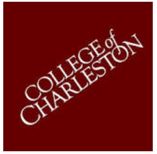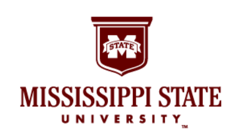 |
|||||
[ Home | About Us | Grant Making | Grant Programs | Contact Us ] Select the Year to view: 2008-2010 • 2011 • 2012 • 2013 • 2014 • 2015 • 2016 • 2017 • 2018 • 2019 • 2020 • 2021 • 2022 • 2023 Programs at the following universities received grants during 2013:
During 2013 about $450,000 were granted to 21 programs, seven of which were new to the Apgar Foundation. We are very proud of all the outstanding programs we are supporting and the role we play in launching and sustaining them. We believe they each, in their own way, work to further Apgar Foundation's mission of broadening the horizons of college students to include exposure to key ideas which have shaped the exceptional trajectory of the United States in promoting human flourishing. Below, please find a number of programs receiving funding in 2013-14. They are highlighted in no particular order, but rather chosen for their illustrative value. We are proud of all our grantees, their commitment to the mission of the Apgar Foundation, and their dedication to stimulating thought and debate about Western and American traditions, institutions, and values on their campuses.  At the College of Charleston, Apgar Foundation supports the Initiative for Public Choice & Market Process. The Initiative is a center in the College of Charleston's School of Business with a focus on educating students in the area of political economy. Students are provided with an understanding of how markets function to deliver peace and prosperity to a society. The Center explores the role of institutions and how evaluating the institutional arrangements of the private and public sector is important to understanding economic and social outcomes. In particular, it explores how institutions such as property rights, free exchange and the rule of law generate outcomes that promote wealth and prosperity in a global market.
At the College of Charleston, Apgar Foundation supports the Initiative for Public Choice & Market Process. The Initiative is a center in the College of Charleston's School of Business with a focus on educating students in the area of political economy. Students are provided with an understanding of how markets function to deliver peace and prosperity to a society. The Center explores the role of institutions and how evaluating the institutional arrangements of the private and public sector is important to understanding economic and social outcomes. In particular, it explores how institutions such as property rights, free exchange and the rule of law generate outcomes that promote wealth and prosperity in a global market.
 At Mississippi State University, Apgar Foundation supports the Institute for the Humanities. The Institute seeks to introduce undergraduate students to ideas and works they might not otherwise have encountered and thereby to spark their own further inquiry, interest, and study. The Foundation assists in supporting a Distinguished Lectures Series and provides opportunities for speakers to interact with faculty and students through arranged informal seminars on aspects of speakers' work which themselves demonstrate that education involves more than coursework towards a degree or classroom activity. Institute events draw attention to how important cultural and intellectual aspects of Western Civilization and the American tradition help to sustain liberal democracy. Speakers often discuss their own career choices and how and why they pursued studies in the humanities. This provides students a model for humanistic inquiry and creative activity the current academy rarely provides. If education involves leading students into a world beyond their immediate experiences, the Institute for Humanities plays an important part in that endeavor at Mississippi State.
At Mississippi State University, Apgar Foundation supports the Institute for the Humanities. The Institute seeks to introduce undergraduate students to ideas and works they might not otherwise have encountered and thereby to spark their own further inquiry, interest, and study. The Foundation assists in supporting a Distinguished Lectures Series and provides opportunities for speakers to interact with faculty and students through arranged informal seminars on aspects of speakers' work which themselves demonstrate that education involves more than coursework towards a degree or classroom activity. Institute events draw attention to how important cultural and intellectual aspects of Western Civilization and the American tradition help to sustain liberal democracy. Speakers often discuss their own career choices and how and why they pursued studies in the humanities. This provides students a model for humanistic inquiry and creative activity the current academy rarely provides. If education involves leading students into a world beyond their immediate experiences, the Institute for Humanities plays an important part in that endeavor at Mississippi State.
 At Furman University, Apgar Foundation supports The Tocqueville Program. The Tocqueville Program seeks to invigorate liberal education at Furman by injecting greater appreciation, coherence, rigor, and dynamism into the study of the Western and American tradition. It has been developed in response to the growing civic and cultural illiteracy of students enrolled in American institutions of higher education. With the creation of a year-long sequence on foundational elements in the Western tradition, students are encouraged to take advantage of their undergraduate years to engage in serious study of the enduring questions, principles, and texts of the Western and American traditions through discussions, in-class and public lectures, as well as less formal opportunities for students to interact with speakers including meals, campus tours, individual and small group meetings. In addition, in partnering with additional student groups on campus, the Program is launching an essay competition this academic year.
At Furman University, Apgar Foundation supports The Tocqueville Program. The Tocqueville Program seeks to invigorate liberal education at Furman by injecting greater appreciation, coherence, rigor, and dynamism into the study of the Western and American tradition. It has been developed in response to the growing civic and cultural illiteracy of students enrolled in American institutions of higher education. With the creation of a year-long sequence on foundational elements in the Western tradition, students are encouraged to take advantage of their undergraduate years to engage in serious study of the enduring questions, principles, and texts of the Western and American traditions through discussions, in-class and public lectures, as well as less formal opportunities for students to interact with speakers including meals, campus tours, individual and small group meetings. In addition, in partnering with additional student groups on campus, the Program is launching an essay competition this academic year.
 At Hampden-Sydney College, Apgar Foundation is supporting the James Madison Program at the Wilson Center for Leadership in the Public Interest. The James Madison Project, a national leadership initiative for men, has launched several academic enrichment initiatives, including a speakers' series, symposia on subjects pertaining to Western Culture in general, American culture in particular, the American political/electoral system, and global challenges to the United States. The James Madison Project will give students valuable opportunities to gain the knowledge and skills that are essential to professional success and thoughtful citizenship as well as personal happiness. Through the Wilson Center, students in the James Madison Program are offered quality workshops designed to assist them in developing and strengthening the leadership skills that will position them to be engaged citizens and effective leaders as members of professional as well as civic organizations.
At Hampden-Sydney College, Apgar Foundation is supporting the James Madison Program at the Wilson Center for Leadership in the Public Interest. The James Madison Project, a national leadership initiative for men, has launched several academic enrichment initiatives, including a speakers' series, symposia on subjects pertaining to Western Culture in general, American culture in particular, the American political/electoral system, and global challenges to the United States. The James Madison Project will give students valuable opportunities to gain the knowledge and skills that are essential to professional success and thoughtful citizenship as well as personal happiness. Through the Wilson Center, students in the James Madison Program are offered quality workshops designed to assist them in developing and strengthening the leadership skills that will position them to be engaged citizens and effective leaders as members of professional as well as civic organizations.
 At Texas Tech University, Apgar Foundation supports The Institute for the Study of Western Civilization. The Institute's goal is to shift higher education's attention back to the big questions about Western civilization and its realization in America and, more specifically, to those questions that pertain to the nature and preservation of free institutions and a culture based on reason, individualism, and tolerance. Its programming includes the creation of new courses and programs of study, including a unique undergraduate major in Western civilization located in Texas Tech's Honors College (which has an enrollment of about 1,200 students), an active lecture series, other extra-curricular culturally enriching initiatives, and a determined effort to export the academic templates developed at Texas Tech to other American universities and colleges.
At Texas Tech University, Apgar Foundation supports The Institute for the Study of Western Civilization. The Institute's goal is to shift higher education's attention back to the big questions about Western civilization and its realization in America and, more specifically, to those questions that pertain to the nature and preservation of free institutions and a culture based on reason, individualism, and tolerance. Its programming includes the creation of new courses and programs of study, including a unique undergraduate major in Western civilization located in Texas Tech's Honors College (which has an enrollment of about 1,200 students), an active lecture series, other extra-curricular culturally enriching initiatives, and a determined effort to export the academic templates developed at Texas Tech to other American universities and colleges.
|
|||||
|
|
|
|
|
|
|